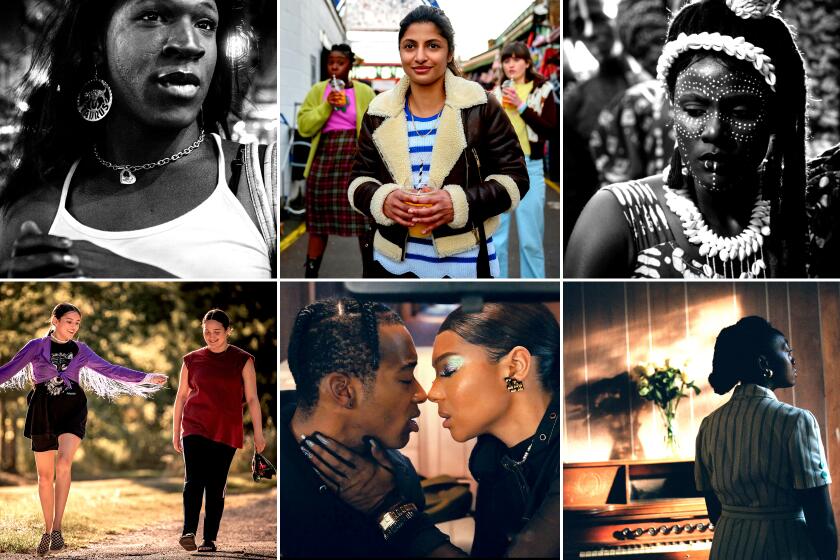7 movies to catch at this year’s Los Angeles Latino International Film Festival
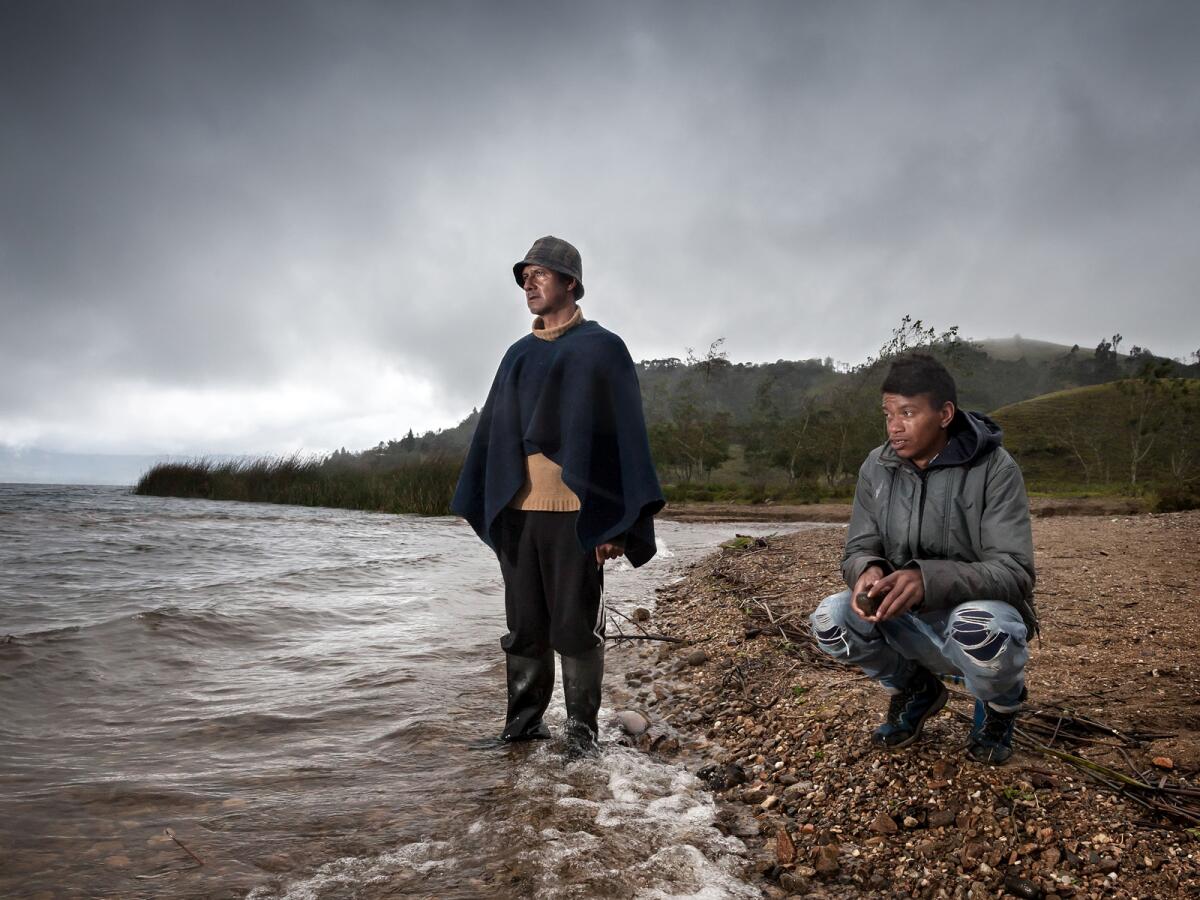
Combining in-person screenings and virtual events, the Los Angeles Latino International Film Festival returns to the TCL Chinese Theatres in Hollywood this week. The curated lineup features heavyweight Latino titles including a special presentation of the highly anticipated musical “In the Heights,” based on Lin-Manuel Miranda and Quiara Alegría Hudes’ stage show, and “Rita Moreno: Just a Girl Who Decided to Go for It,” a heartfelt documentary about the Puerto Rican icon.
Putting forward one of its strongest programs since reemerging in 2018 after a long hiatus, the less conspicuous gems at LALIFF include unique stories from Latin America focused on Afro Latinos and Indigenous populations, as well as a variety of titles by American Latinos that include always topical immigration yarns as well as unexpected genre offerings.
For the record:
9:34 a.m. June 1, 2021An earlier version of this story identified “In the Heights” as the festival’s opening night film. “7th & Union,” a drama about an ex-fighter, is the opening night film on Wednesday.
As the festival is composed of nearly 20 features and two dozen shorts, navigating everything at the public’s disposal might be a challenge, so we are highlighting seven thematically varied movies not to miss. LALIFF runs Wednesday through Sunday.
‘Between Fire and Water’
This singularly intersectional adoption story from Colombia follows Camilo, a young Black man raised in the Quillacinga Indigenous reservation near the Cocha Lagoon. Although he had always felt part of the community and followed its rules and traditions, as an adult he yearns to find his biological mother for a sense of direct connection. In the documentary, director Viviana Gómez Echeverry examines, with a keenly observational eye, Camilo’s troubled state of mind as his loving adoptive parents support his search for identity. Interwoven in the same arc are the Indigenous people’s efforts to maintain sovereignty over their land and resources amid the government’s plan to privatize them for tourism purposes.
‘Bridges’
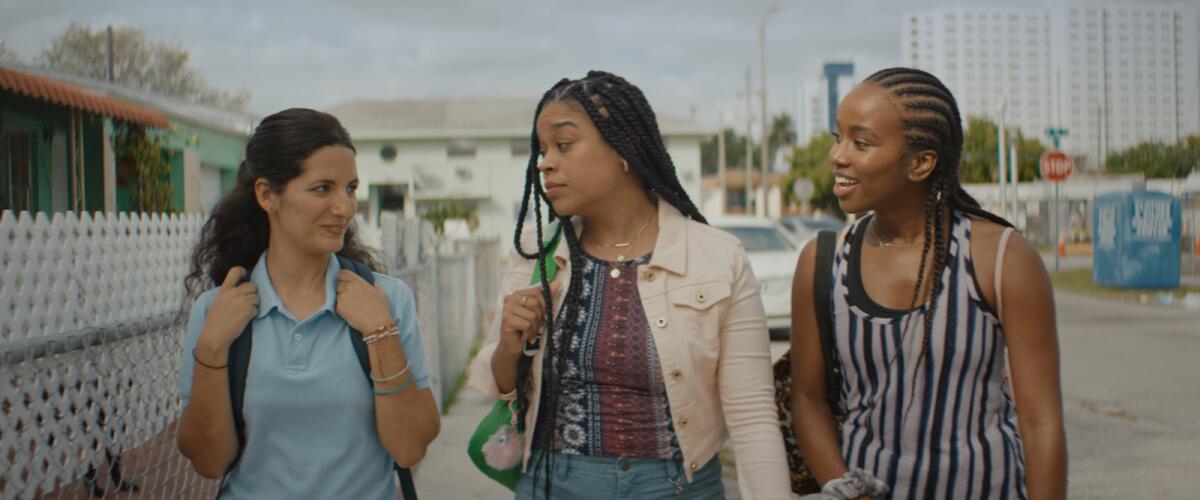
Venezuelan-born, Miami-based writer, director and star Maria Corina Ramirez transfigures her personal accounts into a contemplative debut feature about an undocumented high school student uncertain about her future in the U.S. This is the rare film that deploys voice-over not as narration but to lace the images with introspective poetry as the protagonist debates what to share with the world in her valedictorian speech. Ramirez’s understated performance and supporting narrative choices resonate with humble determination. They come from lived-in knowledge and a talent to present those experiences gracefully in each scene. “Bridges” is one of the most accurate film portrayals of what immigrant youths withstand in this country.
‘Executive Order’
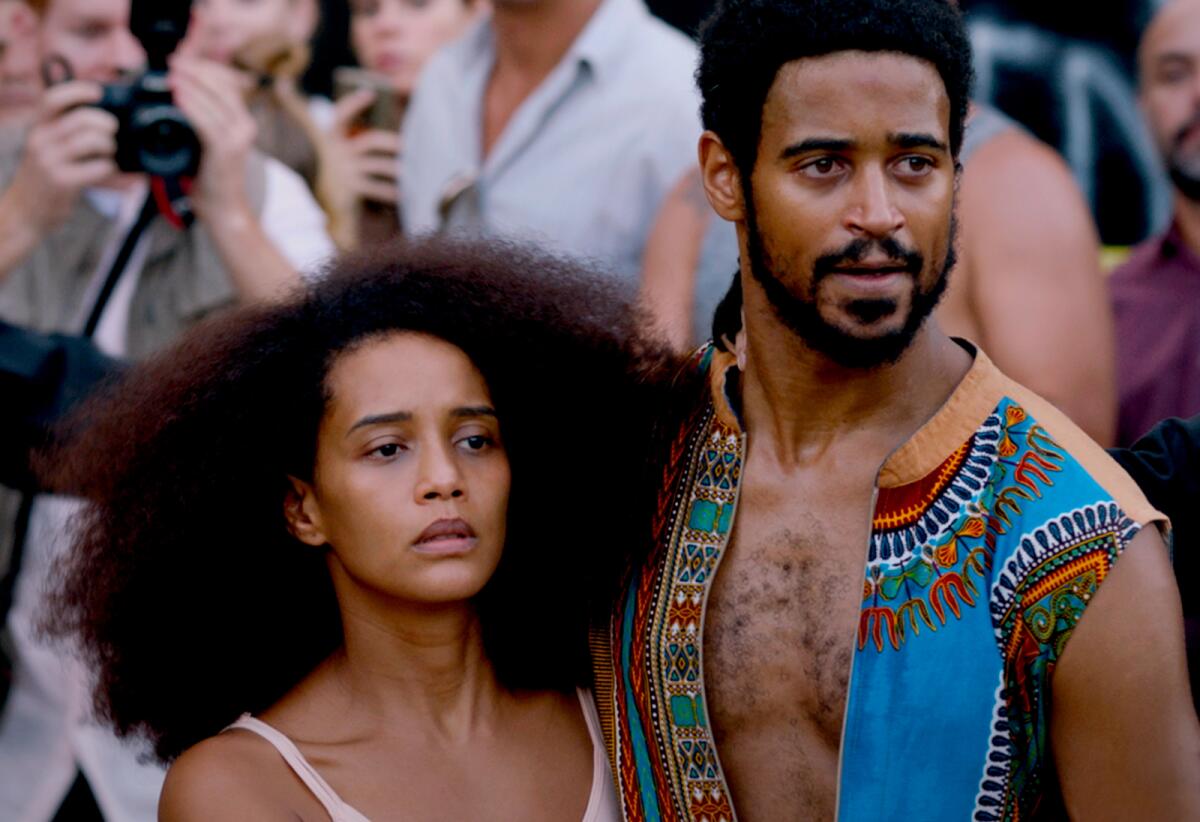
A dystopian drama that conveys the racial inequity rampant in Latin America, actor Lázaro Ramos’ first feature film as a writer-director is a searing and frightening fiction. Within this alternate world, Black individuals in Brazil are referred to as “high-melanin citizens.” The racist government, unwilling to address the horrors of slavery and pay reparations, passes a measure that will deport all Black Brazilians to the African continent. Through dynamic sequences that sharply exploit this heightened realm to express the films’ ideas, Ramos firmly tackles the complex plight of Afro Latinos. The subject is alarmingly relevant in the U.S., where the Republican Party has prioritized banning critical race theory in an effort to perpetuate an untruthful status quo.
‘Landfall’

Meticulously researched, this portrait of Puerto Rico in the aftermath of 2017’s Hurricane Maria goes beyond examining the infuriating neglect of the island by the United States government in a time of crisis to paint an expansive picture of the neocolonial practices that have devastated its economy. Brilliant documentarian Cecilia Aldarondo traveled to nearly every corner of the territory to contrast the conditions of locals — defined by uncertainty, scarcity and resilience — with the opportunistic vision that voracious outsiders have for what they see as a profitable tax haven. Archival footage reminds us that, both now and decades ago, foreign plans for so-called improvement never have Boricuas in mind.
‘My Heart Can’t Beat Unless You Tell It To’
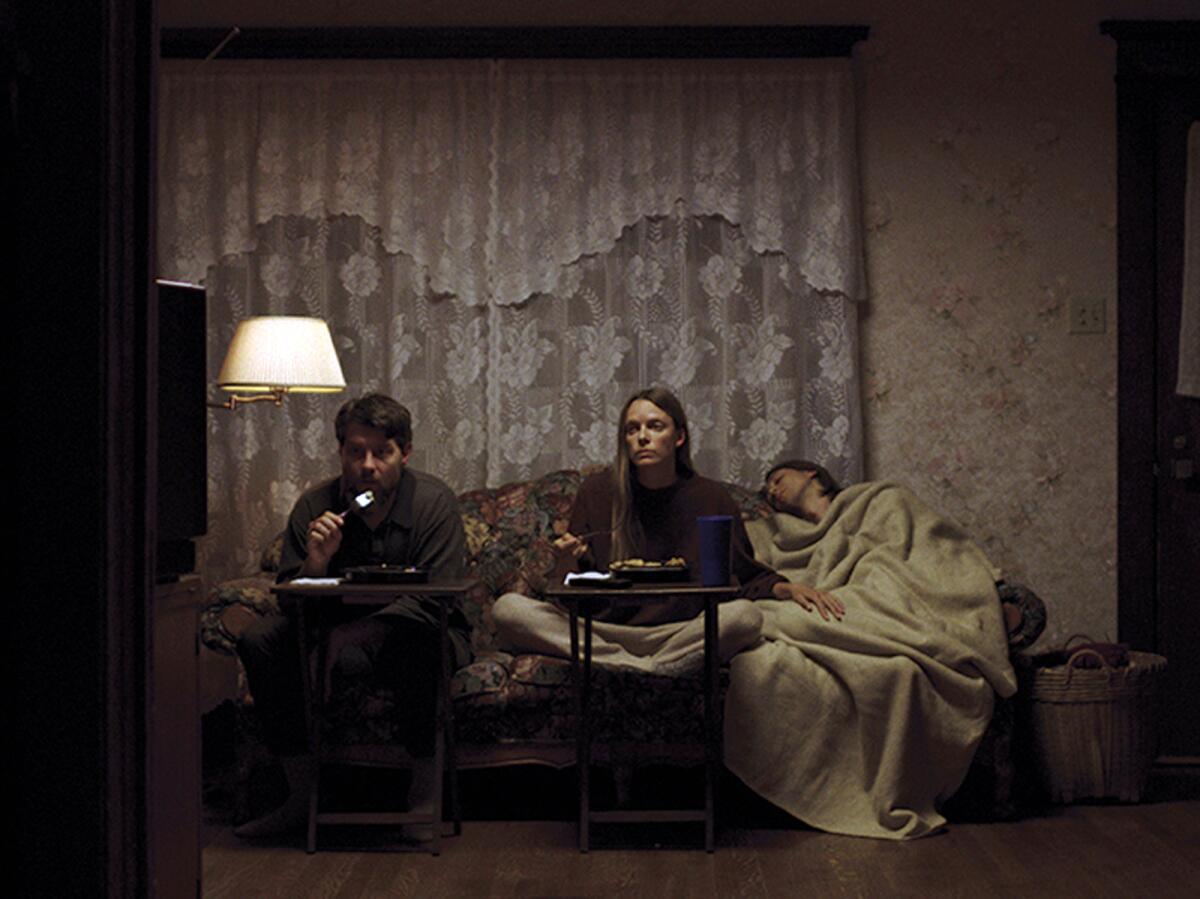
Along the lines of great modern vampire films such as “Let the Right One In” and “Only Lovers Left Alive,” this eerie horror drama centers on three siblings trapped in a disturbing lifestyle. Hesitant but loyal, Dwight (Patrick Fugit) is tasked with hunting prey to feed his pallid younger brother, Thomas (Owen Campbell), who is allergic to the sun and awake only at night. Fed up with such a dark existence, Dwight wishes to escape their strict sister, Jesse (Ingrid Sophie Schram). Subdued in its approach to well-trodden tropes, director Jonathan Cuartas’ genre offering grounds the myth in an urban reality thanks to the cast’s fittingly muted acting.
‘Nudo Mixteco’
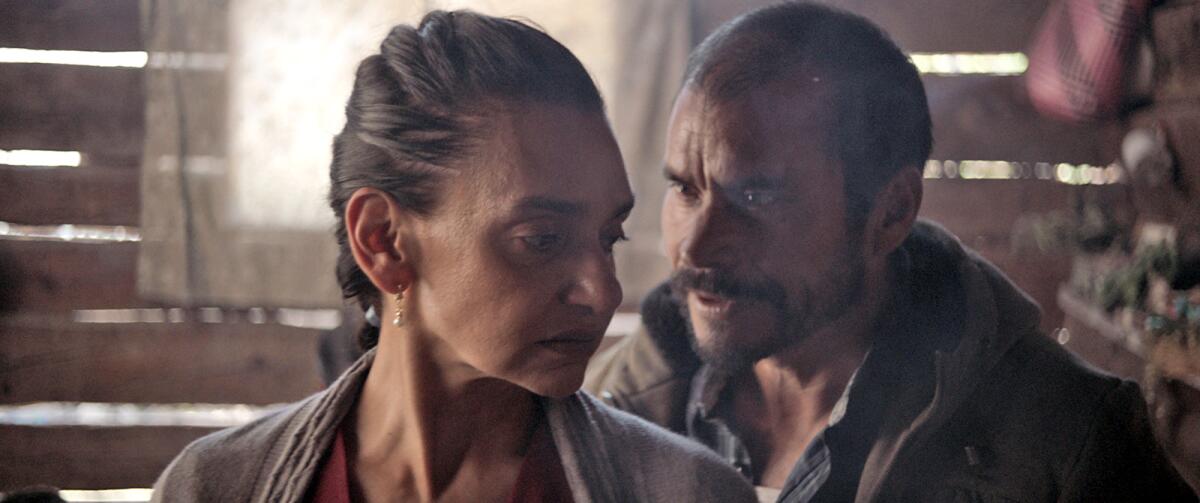
Three women grapple with a distinct aspect of their sexuality in a fascinating multi-narrative plot that unfurls over the course of two days in San Mateo, an Indigenous Mixtec small town. The astutely penned social drama from Mexican writer-director Ángeles Cruz, a Mixtec woman herself, addresses the patriarchal systems that hinder women’s most intimate choices, as well as the effects of economic hardship that force individuals in rural areas to migrate to urban centers. Cruz guides the ensemble cast, which includes prolific actor Noé Hernández, to superbly nuanced interactions often underlined with a sorrowful mood. Her stellar work joins a much-needed wave of Indigenous stories and storytellers in Mexican cinema in recent years.
‘Women Is Losers’
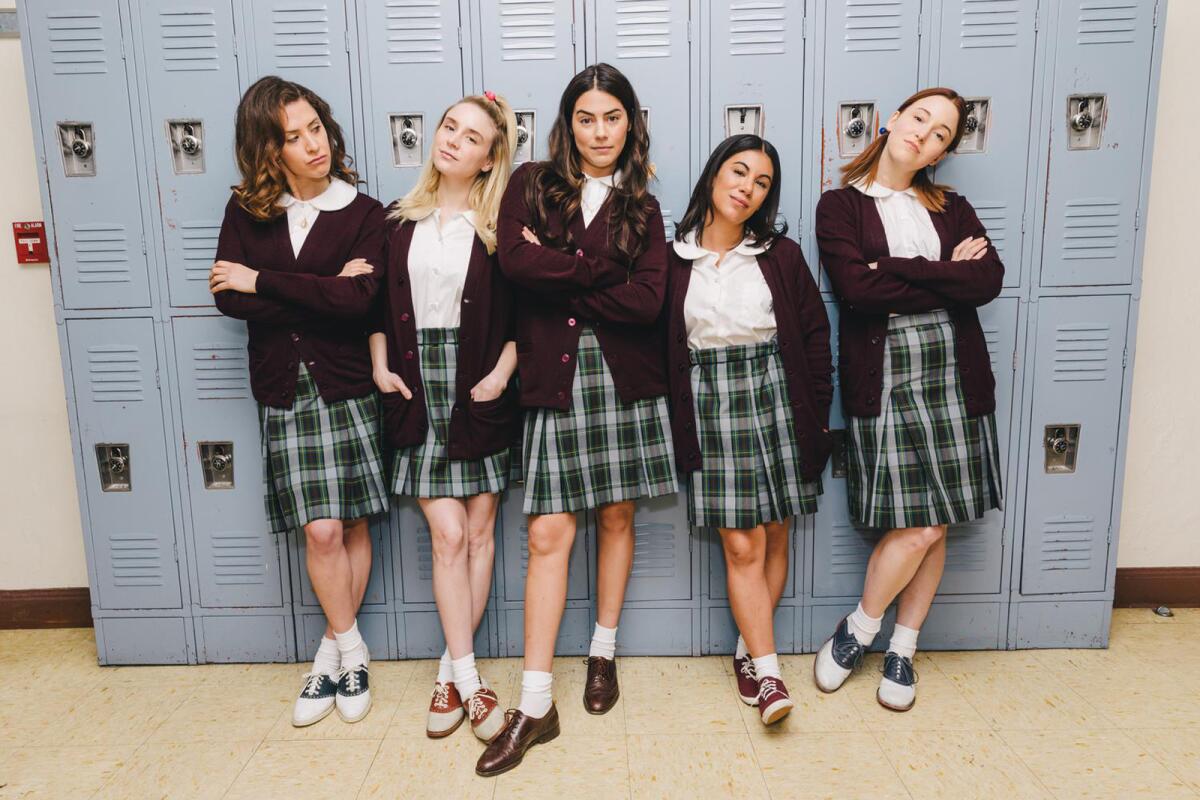
In her best lead role to date, and a bilingual one to boot, Chilean actress Lorenza Izzo (“Once Upon a Time … in Hollywood”) commands this tragicomedy set across the late 1960s and early ’70s. As Celina, a single mother in San Francisco, she explores the institutionalized sexism and social stigmatization that prevent women from achieving their professional goals and taking charge of their reproductive health. Breaking the fourth wall and often providing historical context, which is admittedly a bit obvious at times, director Lissette Feliciano presents a lively and poignant tribute to womanhood. The unapologetically Latinx movie, which is LALIFF’s closing-night presentation, takes its name from Janis Joplin’s 1967 song.
Los Angeles Latino International Film Festival
When: Wednesday-Sunday
Where: TCL Chinese Theatres, Hollywood, and virtual screenings
Info: LALIFF.org
More to Read
Only good movies
Get the Indie Focus newsletter, Mark Olsen's weekly guide to the world of cinema.
You may occasionally receive promotional content from the Los Angeles Times.




